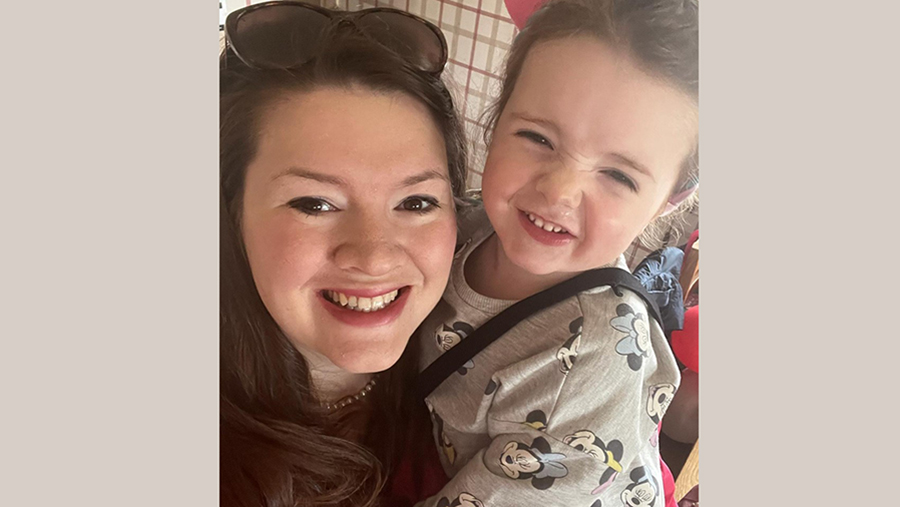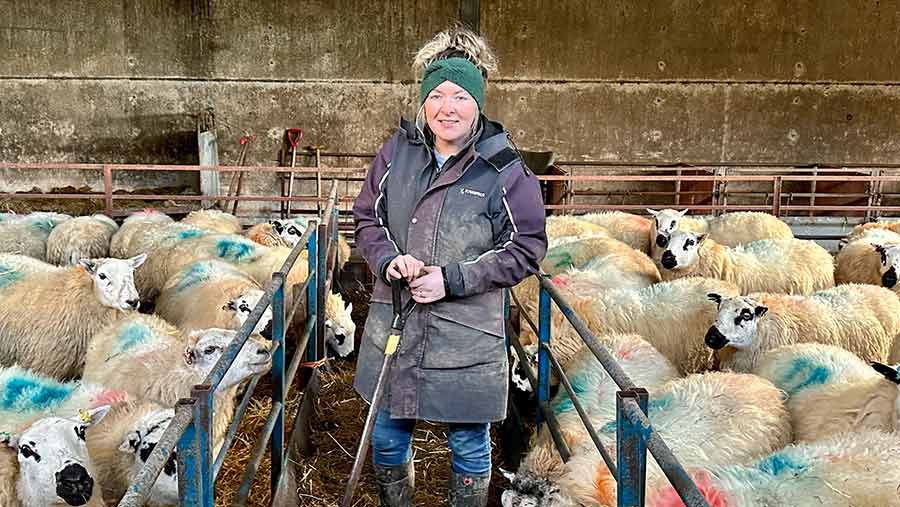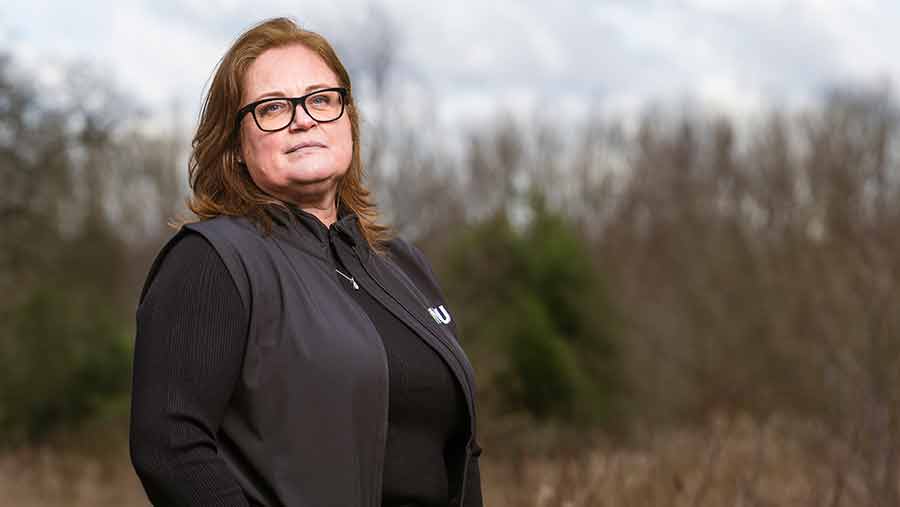International Women’s Day 2024: Celebrating female farming leaders
To celebrate International Women’s Day 2024 on Friday (8 March), we’re shining a spotlight on farming women and female leaders within agriculture, from all corners of the UK.
See also: Britain’s Fittest Farmer: Meet the women returning in 2024
England
Newly elected NFU vice-president Rachel Hallos is flying the flag for women in agriculture within the NFU, continuing the legacy set by immediate past president Minette Batters, who was the first female to take the helm of the organisation.
As an upland farmer from the South Pennines, Rachel farms in partnership with her husband and children, and says that the role of women on farms has changed enormously over the years.
She said: “Women have always been the backbone of a large majority of UK farming businesses and traditionally have probably not had the recognition they deserve.
“Our industry has changed considerably and is now quite diverse, and it’s great to see so many young women entering agricultural colleges and universities.
“There are also many more opportunities to be involved in farming-related businesses and the wider industry – such as jobs in science and retailing.”
Rachel says the industry has taken great strides, but some issues still remain to be tackled.
“Many farming families I speak to are always delighted that their daughters are wanting to come into the industry, but succession does remain an issue – and that’s for both sexes – although the situation has improved over the past few years.
“I really hope I was elected as vice-president of the NFU because people believed in me and put their trust and faith in me – and not just because I am a woman. That needs to continue within the NFU and across the wider UK farming industry.”

Scotland
Imposter syndrome is something Sarah Millar, chief executive of Quality Meat Scotland, says she fought for the first few months of her high-profile job – banging the drum for Scotland’s red meat market, which is worth just shy of £3bn to the Scottish economy.
“I was fine talking to the farmers – I’m one of them, being a farmer’s daughter and married to a farmer. But the high-value corporate companies felt like a challenge to begin with.
“It was like we came from different worlds – which we did. Over time, I learned that if you know your stuff and have done your preparation, this sector treats you equally to any man.”
At just 32, Sarah says she feels her age has meant that gender has not been a barrier.
“We are just one female short of having an equal gender split on the QMS board.
“When you consider the first woman was appointed to the board 20 years ago, that shows what great strides have been made over recent years.
“I think we, as women in the privileged position of leadership, are always happy to keep strengthening the ladder for those coming behind us.”

© Sioned Thomas-Jones
Wales
Multi-tasking mother, full-time farmer and diversifier, Sioned Thomas-Jones is one of many generations of her family to farm at Nant-y-Gaseg near Machynlleth, mid Wales.
In partnership with her parents, Huw and Eleri, she runs a flock of around 960 speckle-faced, Welsh Tregaron type and crossbred ewes, selling the finished lambs at the local livestock market.
They also keep 30 suckler cows and sell their Limousin X store cattle to market, where they recently made history in the ring selling their 17-month Lim X steer for a centre record of £2,010.
At 37, Sioned says she has always wanted to be a farmer.
“I had a keen interest in farming from a very young age and have worked on the farm for nearly 20 years. I enjoy being out on the hills gathering the sheep, looking down on the Dyfi Valley – it really is heaven on earth for me.
“My passion is sheep work. Shearing and lambing. I love it! Lambing in particular is a special time of year. There is nothing better than welcoming new life onto the farm, and I enjoy sharing that experience with my nine-year-old son, Huw Ifan.”
Sioned says that she has never felt different for being female, and has always been accepted in the farming community.
“I strongly feel that women play an equal role in the industry and have many female friends who work on farms.
“Women have always been critical on the farm, but traditionally may not have been given the credit they deserve.
“Despite being quite old-fashioned here – we enjoy coming into the house to a nice meal on the table after a long day on the hills, usually prepared by my mother, who also plays a crucial role in the business – it gives me great pride to see that things have now changed. Women are proving that it’s not just an industry for men.”
Northern Ireland
Farming in Ballinderry, County Antrim, Joanne Best first fell in love with farming aged five.
Originally from England, Joanne explains that her father was a bank manager in Fleet Street, London, but that her family would holiday in a little cottage in mid-Wales, on a mixed sheep farm.
“They took me there when I was five, and I got the bug and told myself that that was what I wanted to do – from five years old I wanted to be a farmer.
“I went through school and, after my A-levels, I went to agricultural college in Aberystwyth and when I was there I met my husband, who was from Northern Ireland.
“We got married when we were 23, and started off agricultural contracting. We did a lot of round baling and wrapping – we clocked up about 35,000 bales.”
Joanne and husband Lindsay bought their own farm, and now farm around 40ha, where they have 16,000 free-range laying hens, 200 ewes, 25 cattle and glasshouses for their strawberry business.
“I definitely think that, if women are determined enough, they shouldn’t hold themselves back.
“Underneath, I’m quite a shy person and at times I’ve found it hard going to market to sell cattle by myself, or sheep, because it is very male dominated – especially in Northern Ireland.
“Sometimes it’s not all that friendly, but you can grit your teeth, and you can do it. I’m always really pleased after I’ve done it, when I’ve sold our cattle, or weighed our lambs and taken them to the abattoir.
“If you are determined enough you can definitely do anything. You should never put yourself down.”
Joanne says that another vital ingredient to her success has been having a sense of humour while working on the farm. “You need a sense of humour and to be able to laugh at yourself if things don’t go to plan,” she says.
“When I was at agricultural college I remember one of my lecturers said to me when I left, “you’ll get a job in agriculture, but you’ll never be doing the farming – and that really annoyed me at the time. I thought ‘how dare he just think that’. If he knew me now, he would know that I’ve proved him wrong.”


